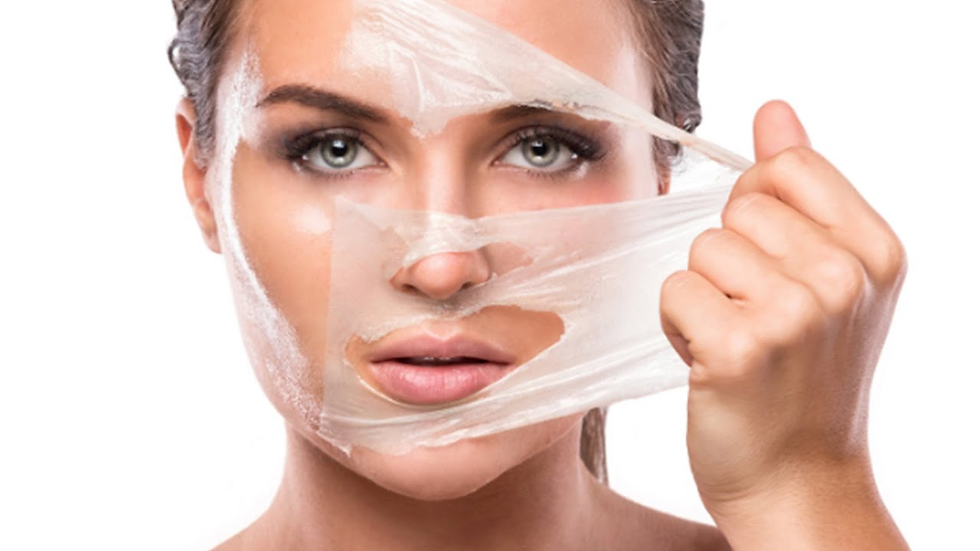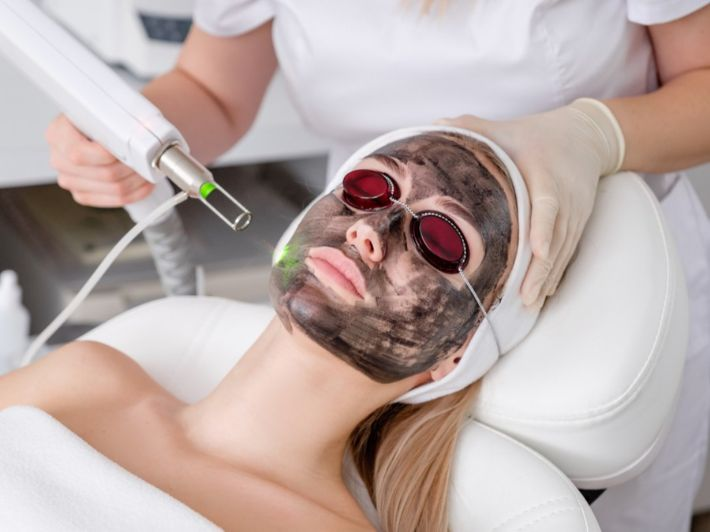Can Chemical Peels Deep Clean Pores to Prevent Acne?
- Dynamicaesthetic Clinicdubai
- Nov 3, 2025
- 3 min read
Achieving clear and smooth skin can be challenging when acne and clogged pores get in the way. In the modern skincare world, Chemical Peel Treatment in Dubai has become a trusted solution for deep cleansing and rejuvenating the skin. This treatment doesn’t just enhance the skin’s surface—it works beneath the top layer to purify pores, remove impurities, and prevent future acne breakouts.
Understanding the Role of Pores and Acne Formation
Pores play a vital role in maintaining skin health by allowing natural oils (sebum) to reach the surface and keep it moisturized. However, when these pores are filled with:
Dead skin cells
Excess oil
Environmental impurities
Bacteria
How Chemical Peels Work to Deep Clean Pores?
A chemical peel involves applying a specialized solution to the skin that gently removes the outermost layers of dead cells. This process triggers cell turnover, encourages fresh skin growth, and allows pores to breathe freely.
The ingredients in a peel—such as glycolic acid, lactic acid, or salicylic acid—work to:
Dissolve built-up debris and oil within pores
Exfoliate dead skin cells that trap bacteria
Reduce inflammation associated with acne
Unblock congested follicles and allow for smoother skin texture
Why Chemical Peels Are Ideal for Acne-Prone Skin?
Acne-prone skin requires a treatment that balances exfoliation with healing. Chemical peels deliver both benefits through controlled exfoliation. The skin experiences deep purification while maintaining hydration and protection.
Key benefits include:
Deep exfoliation: Removes accumulated sebum and dead skin cells.
Improved oxygen flow: Clean pores allow better oxygen supply, reducing bacterial growth.
Enhanced absorption: Post-peel skin absorbs skincare products more effectively.
Smoother surface: Refines texture and minimizes the appearance of acne scars.
Long-term prevention: Reduces future breakouts by keeping pores unclogged.
Types of Chemical Peels for Deep Pore Cleansing
There are several types of peels suitable for different skin concerns. For acne prevention and pore cleansing, dermatologists commonly recommend:
Salicylic Acid Peel: Best for oily and acne-prone skin. It penetrates deep into the pores to remove excess sebum and bacteria.
Glycolic Acid Peel: Derived from sugarcane, it promotes collagen production while clearing away impurities.
Lactic Acid Peel: A gentle option for sensitive skin that brightens and cleanses without irritation.
TCA Peel (Trichloroacetic Acid): Effective for deeper exfoliation and improving skin clarity.
How Often Should You Get a Chemical Peel?
The frequency of chemical peels depends on your skin type, concerns, and the strength of the solution used. Generally, mild peels can be done every 4–6 weeks, while medium-depth peels are performed less frequently. Regular sessions maintain pore clarity and help regulate oil production, preventing acne from reappearing.
What Happens During the Procedure?
A typical chemical peel session is a quick and comfortable process, often completed in under an hour. It involves the following steps:
Cleansing: The skin is thoroughly cleansed to remove dirt and oil.
Application: A peeling solution is applied to the targeted area.
Reaction Time: The peel is left on for a few minutes as it begins to exfoliate the skin.
Neutralization: The solution is neutralized and removed.
Hydration: A soothing moisturizer and sunscreen are applied for protection.
Visible Improvements After a Chemical Peel
After undergoing a chemical peel, you’ll notice a remarkable improvement in the appearance and feel of your skin. Some key transformations include:
Reduction in blackheads and whiteheads
Smoother skin texture
Brighter and more even tone
Minimized pore visibility
Why Deep Pore Cleansing Is Crucial for Acne Prevention?
Deep cleansing is essential because clogged pores are the foundation of most acne issues. When sebum and impurities remain trapped, bacteria multiply, leading to inflammation and pimples. Regular chemical peels ensure that the pores are continuously purified, allowing the skin to regenerate naturally.
Benefits of maintaining clean pores:
Prevents bacterial buildup
Balances oil production
Reduces breakouts and acne scars
Improves skin texture and radiance
Post-Treatment Care for Long-Lasting Results
To maximize the benefits of a chemical peel, proper aftercare is essential. While the skin naturally renews itself after exfoliation, following a few simple steps enhances and prolongs the effects.
Tips for post-peel care:
Keep skin hydrated with a gentle, non-comedogenic moisturizer
Use broad-spectrum sunscreen daily
Avoid harsh scrubs and active products for a few days
Follow your skincare professional’s advice for optimal recovery
Conclusion
Chemical peels go beyond surface exfoliation—they reach deep within the pores to eliminate impurities, balance oil levels, and prevent future breakouts. By promoting cell renewal and clearing away congestion, they deliver smoother, brighter, and blemish-free skin. If you want to achieve a truly refreshed and clear complexion, professional chemical peels can be a game-changer in your skincare journey.For those looking to maintain healthy, glowing skin and long-term acne control, expert treatments at Dynamic Life Clinics provide personalized care and visible transformations that help your skin stay naturally beautiful.







Comments